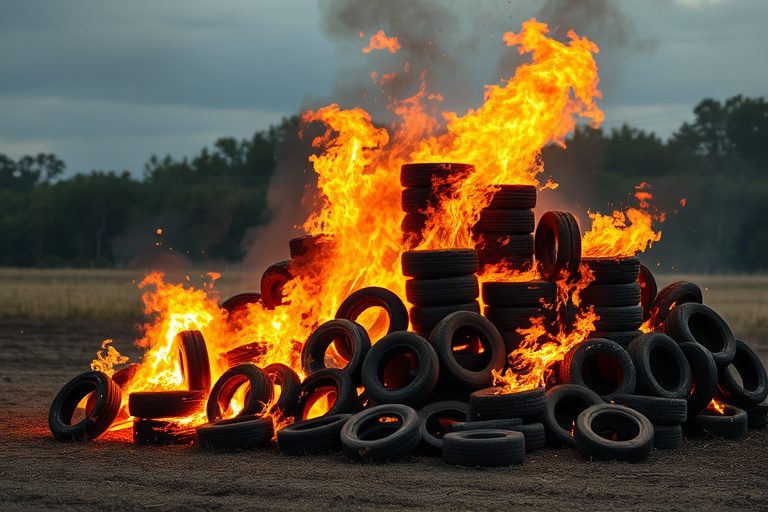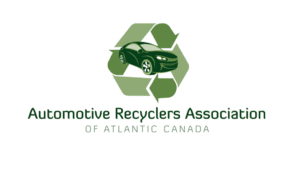Toronto, Ontario — The Automotive Recyclers of Canada is issuing a dire warning to Canadians following the announcement that Environmental 360 Solutions, Ontario’s largest tire collector, is cutting back its services.
“E360’s decision to reduce collection services is not a threat — it’s a reality,” Wally Dingman, executive director of the ARC said in an open letter published online. “And without immediate corrective action, tires will begin to pile up at shops, yards, and municipal depots across Ontario. We’ve seen this before. When tire collection stalls, it creates a domino effect:
E360 recently announced it would cut back services after years of covering shortfalls left by other producer responsibility organizations. The company had been collecting tens of thousands of surplus tons of tires which it had not been compensated for.
Environmental 360 Solutions (E360), Ontario’s largest tire collector, plans to reduce services after collecting over 60,000 tons of surplus tires for two years without compensation. The company blames the failure of the province’s credit-trading system and eTracks, another Producer Responsibility Organization (PRO), for not meeting obligations. A $7.4 million settlement between eTracks and the regulator RPRA allowed eTracks to avoid penalties, further frustrating E360 and other recyclers. The controversy has raised alarms about illegal dumping, stranded tires and fairness in Ontario’s recycling system.
“Those tires weren’t E360’s responsibility,” Dingman wrote. “They were collected to fill gaps left by underperforming [Producer Responsibility Organizations], especially eTracks, whose failure to meet targets threatened to destabilize the system. E360 acted to avoid environmental and service crises, expecting to be compensated through Ontario’s anticipated credit market — a mechanism referenced in RPRA’s own compliance bulletins.”
Ontario’s tire recycling system operates under an individual producer responsibility model, where tire producers are required to collect and recycle a set percentage—currently 85 percent—of the weight of tires they sell into the market each year. To meet these obligations, many producers join Producer Responsibility Organizations, which coordinate collection and processing on their behalf. When a PRO collects more tires than required, that surplus is considered “recovered weight” and can be converted into performance credits. These credits are intended to be traded or sold to other PROs or producers who have fallen short of their own targets.
This is the heart of the current controversy involving Environmental 360 Solutions (E360), which says it has collected over 60,000 tons of surplus tires in the past two years without receiving payment. E360 expected to sell those surpluses as credits but claims the system has failed to produce functioning trades, particularly with eTracks, the largest competing PRO. The regulator, RPRA, allowed eTracks to settle its non-compliance for $7.4 million, without requiring the purchase of surplus credits. As a result, E360 is scaling back service, warning that the province could face tire pileups, illegal dumping and increased costs for municipalities if the credit system isn’t fixed.
He went on to say that Ontario’s tire collection failures have led to a series of worsening problems in the province, including illegal dumping and increased financial pressure on municipalities. The note called for several organizations, including the Ministry of Environment, to take responsibility.
He added that a new system should be set up to deal with end-of-life tires. It would include a functioning credit clearinghouse, transparent penalties and enforcement, in-province processing protection and investments and an end to the preferential treatment believed to undermine the fairness of the system.
“This is a moment for leadership — not silence. . . . The stakes are too high for inaction. Ontario deserves a tire recycling system that is accountable, equitable, and sustainable.”
Here is the full text of the open letter:
Ontario’s Tire Recycling Program Is Breaking Down — and It’s Time for Answers
By Wally Dingman
Ontario’s tire recycling system is reaching a tipping point — and it’s time for key players to answer for the growing dysfunction.
Environmental 360 Solutions (E360), Ontario’s largest tire collector and processor, has confirmed that it will scale back collection services to meet only the minimum legal obligations of its producer clients. This decision was not made lightly — it comes after two consecutive years of collecting more than 60,000 tons of surplus tires beyond their regulatory requirements, with no reimbursement from other Producer Responsibility Organizations (PROs), most notably eTracks.
Those tires weren’t E360’s responsibility. They were collected to fill gaps left by underperforming PROs, especially eTracks, whose failure to meet targets threatened to destabilize the system. E360 acted to avoid environmental and service crises, expecting to be compensated through Ontario’s anticipated credit market — a mechanism referenced in RPRA’s own compliance bulletins.
But that credit market has failed to function. And the result? E360 remains unpaid for tens of thousands of tons of tire collection — while eTracks avoided direct penalties by reaching a $7.4 million settlement with RPRA, allowing them to internally shuffle compliance obligations and reduce their non-compliant producer count from 45 to 27.
Why This Matters
E360’s decision to reduce collection services is not a threat — it’s a reality. And without immediate corrective action, tires will begin to pile up at shops, yards, and municipal depots across Ontario.
We’ve seen this before. When tire collection stalls, it creates a domino effect:
-
Illegal dumping increases, especially in rural areas.
-
Municipalities are left holding the bag — absorbing environmental and disposal costs they were never meant to manage.
-
Tire businesses begin to question the concept of EPR (Extended Producer Responsibility) altogether.
Meanwhile, Ontario’s tire processing capacity continues to decline, with some processors exiting the market and high volumes of collected tires being exported out of province or internationally, shifting jobs and environmental responsibility from Ontario.























